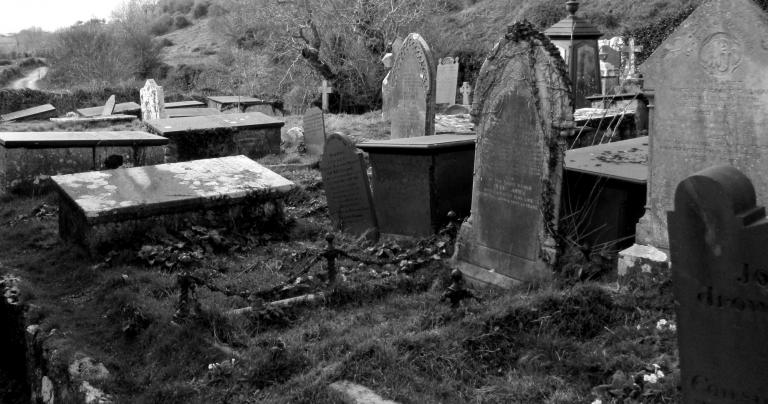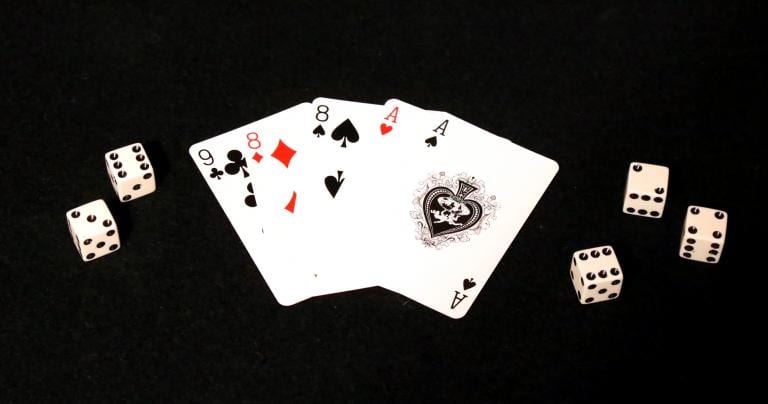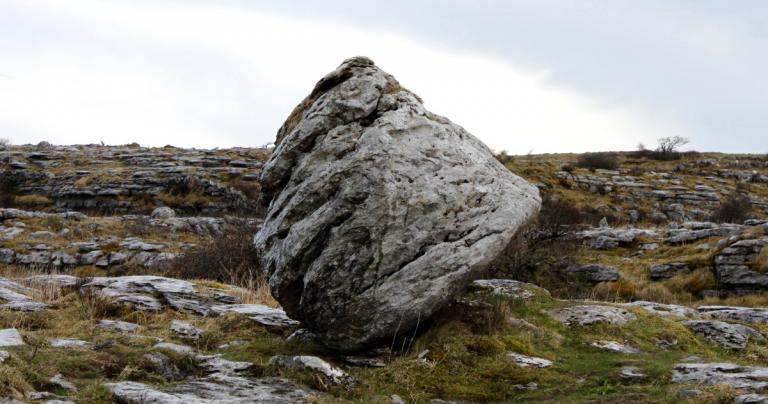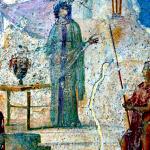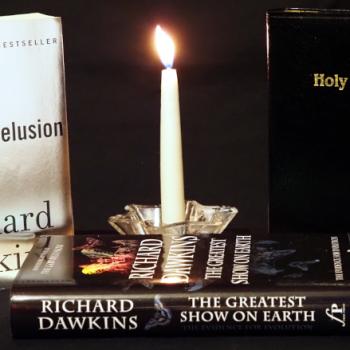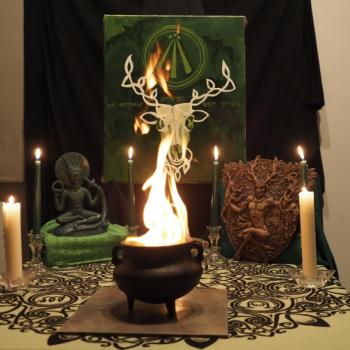Last week I got a long and difficult question. The questioner doesn’t want their name all over the internet, but if you happen to be their Facebook friend you can read their question in its entirety. Here’s a condensed version:
The Morrigan picked me, from all I know since birth. Is it uncommon for a person to be specifically picked by a Spirit, whether they like it or not? I know that you have said that they do this. And why are some people picked it seems from their birth?
However, why is it that She inflicts such suffering and loss, such pain, and yet such power and even triumph? I see her influence in the bully who tripped me at nine years old so I shattered my left knee cap, causing a lifetime of surgeries and crippling pain. I feel her anger and indomitable spirit every day as I strive and succeed at things most people never even try to accomplish.
I’ve done things most people wouldn’t believe, things that are horrible beyond measure. Yet I also am a devoted mother, empathic and compassionate to a fault, never able to numb myself from the traumas I have seen.
I do not understand the suffering I have experienced or that I see in this world. I refuse to believe in “God’s plan” and call bullshit on that now. I only know, in my bones, that Whoever is writing my story is dark and powerful. She is death, haunting every aspect of my life, and endless sorrowing. Yet laced with wild passion and near gloating triumph.
Why? Why was I picked? And what do I do now with that knowledge?
There are multiple questions and multiple issues in this discourse. But the core question is the final one: why?
An eternal human question
Humans have been asking “why?” for at least as long as we’ve been human. We see cause and effect throughout Nature – when we experience effects we look for causes. This is especially true when the effects are unpleasant. Why is there suffering? Why is there disease? Why is there death?
As a Pagan I don’t like quoting the Bible, but there are times when it’s relevant and helpful. This is one of those times.
The oldest book in the Bible is the Book of Job. Scholars have dated it to between 1900 and 1700 BCE, and it has parallels with an even older Babylonian story. In the story Yahweh allows Satan to torment Job (including killing his family) to see if he’ll break – in order to win a bet. Yahweh is clearly not the good guy.
The real purpose of the story is to answer the question “why is there suffering?” In the end, Yahweh’s answer can be boiled down to “who are you to question me?” Which is the writer’s way of saying “we don’t know.”
Over the centuries Jews, Christians, and Muslims have interpreted the story of Job in different ways. Many of them – including the interpretations I was taught growing up – rationalize and excuse Yahweh’s cruel behavior.
Yet a simple, plain reading of this story remains helpful. While sometimes bad things happen because we do something bad, oftentimes bad things happen for no reason at all – or at least, no reason we can comprehend.
Life is more random than we like to admit
“Everything happens for a reason.”
Those are five of the most callous and dismissive words in the English language. They’re thrown out mindlessly to suffering people by those who aren’t interested in reducing the pain of others, but only in avoiding the inconvenience of having to acknowledge other people’s pain. “Everything happens for a reason” is heartless and mindless and should be permanently removed from your vocabulary.
And yet at a certain level, it’s true.
To be clear, everything doesn’t happen because it’s part of some grand plan that will work out OK in end for everyone. But every effect has a cause.
Why was your friend killed in a car wreck? Because the force of impact in the crash was greater than their body could withstand. Because their car didn’t have air bags because it was old because they couldn’t afford a newer one because they had student loans because the state legislature cut funding to higher education. Because they were momentarily distracted because they looked down to change the radio station because a song came on that reminded them of a bad time in their childhood. Because the other driver was going too fast because they were angry because they were fighting with their spouse. And on and on and on.
We want one simple reason. Reality is the interaction of many complicated reasons – so many and so complicated they might as well be random. And since randomness isn’t a satisfying answer, we look for some grand religious or philosophical narrative.
I’ve found that focusing on the mundane, minute reasons – things I can clearly identify – is more helpful than reaching for some deep spiritual narrative. That often means I have to accept some responsibility for things that aren’t “my fault.” In a just world I wouldn’t have to watch out for drunk drivers or people who come to work sick, but we don’t live in that world, so it’s best that I do.
All this randomness – all this chaos – has a good side. Change just one little thing and you can change the outcome. That opens the door for magic: not as a deterministic process but as a probability enhancer. But that’s another post for another time.
It’s not all about us
During the recent California wildfires, a prominent Baptist leader said “creation is groaning under the weight and corruption of sin.”
What arrogance! As though everything that happens on the Earth is all about humans. Now, while human activity has made wildfires worse, wildfires have been burning in the American West for millions of years. Some plants require the high temperatures in fires for their seeds to open.
Science teaches that life originated once on the Earth. We share a common ancestor with every living creature on this planet, some more recent than others. We are part of life, but not its center and not its head.
Animism teaches that everything is not a thing but a person, with their own inherent worth and their own agency. Humans are persons. So are cats and dogs, rabbits and squirrels. So are trees and rivers and mountains. And so are wildfires. They all do their own things for their own reasons, reasons that have little to do with us.
There is a subtle but important difference between saying “a tornado destroyed my house” and “my house was destroyed by a tornado.” The first implies that the tornado intentionally targeted your house. The second acknowledges that your house was destroyed, but simply because it happened to be in the way of a tornado. One is intentional, the other is coincidental.
It’s not all about us.
Our Gods do not micromanage our lives
The previous two sections could have been written by a non-theist. But those of us who have experienced the presence of Gods and spirits can’t stop there. Still, the same powers of observation and deduction that help us understand that life is random and it’s not all about us are also helpful in understanding the role the Gods play in our lives.
The stories of our ancestors and the experiences of contemporary polytheists lead us to conclude that while individual deities and spirits interact with us from time to time – sometimes in powerful, life-changing ways – they do not involve themselves in the details of our lives. Our Gods call us to worship Them, to embody Their virtues, and to make Their values manifest in this world. Sometimes They ask for very specific commitments, while other times we’re left wondering just what They want from us.
If you refuse to believe that the details of your life are “God’s plan” (a position I share, in case that’s not abundantly clear) why would you assume those details – whether painful or pleasant – are the plan of one of the many Gods?
Like all other persons, the Gods do Their own things for Their own reasons. Sometimes those reasons involve us and sometimes they don’t.
I could explore this question’s comments on the Morrigan in more detail, talk about Her work to restore sovereignty, Her role as a Battle Goddess, and especially about Her role as the Raven in the aftermath of battle. But I would simply be restating what I’ve written in the past.
These things may have been directly caused by the Morrigan. Or She may be inserting Herself in circumstances She did not cause but that present an opportunity to further Her aims. Or they may have nothing to do with Her at all. I have enough trouble answering these questions for myself. I can’t begin to answer them for someone else.
Few Gods are transparent – the Morrigan most certainly is not.
Live virtuously no matter what
Some ancient Pagan religions were fatalistic. It’s no wonder: food supplies were erratic, medical care was minimal (and would remain so until the 20th century), and social mobility was virtually non-existent. All work was done by muscle power, which made slavery an attractive proposition for the rich and powerful. Warfare was frequent and brutal.
Living a good life, then, was not about avoiding suffering. You weren’t going to be able to avoid suffering. Rather, living a good life was about living virtuously and even heroically regardless of suffering.
I am not so stoic. Modern life allows us to avoid much suffering and I do my best to take advantage of that opportunity. Yet some things never change. There will always be pain, and loss, and death. And so I try to live according to my highest values when things are bad as well as when things are good. I don’t always do that well, but I do my best to deal with things as they are, even when I wish they were different.
Wrestling with the Big Questions of Life
I occasionally see a bumper sticker that says “there are no answers, only questions.” The questions raised in this post are part of what I call the Big Questions of Life: who are we, why are we here, what happens after death, what is best in life, and why is there suffering?
These questions have no simple answers… and the desire for simple answers is one of the causes of fundamentalism.
But the Big Questions of Life do not exist as a monument to the limitations of human knowledge and understanding. Rather, they challenge us to think about what they mean, to contemplate possible answers, to try those answers on for size and see how they fit. And when they don’t fit perfectly – because they never fit perfectly – to change this premise or that line of reasoning or those conclusions and see if that makes it fit just a bit better.
The Big Questions of Life are similar (but far from identical) to Buddhist koans. Their value comes more from the process of contemplating them than from finding the “right” answer… much less from “believing” an answer someone else gives you. The more you wrestle with them, the more you intuitively understand their magnitude and the impossibility of finding definitive answers, and the more accepting you become of the provisional answers you can find.
This is not to say that any answer is a good answer, or that all answers are equally good. Some answers are clearly wrong, unhelpful, or harmful. Even our best answers will always be tentative and provisional. But if we work diligently, we can find answers that are meaningful and helpful to us.
For further reading
A Pagan View of Suffering (2014)
The Courage to Follow Your Intuition (2017)


